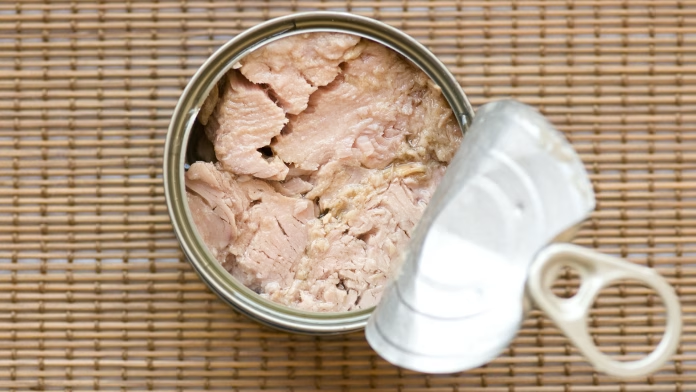Canned tuna is a popular food item that has been a staple in many households for years. It’s convenient, easy to prepare, and can be used in various recipes. However, there has been some debate about whether canned tuna is a healthy choice or not. In this article, we will explore the pros and cons of consuming canned tuna, and whether it’s a good idea to include it in your diet.
Pros of Canned Tuna:
Rich in Protein
Tuna is an excellent source of protein, with each can containing up to 30 grams of protein. Protein is essential for building and repairing muscles and tissues, making it an important nutrient for everyone, especially athletes and bodybuilders.
Omega-3 Fatty Acids
Tuna is also rich in omega-3 fatty acids, which are beneficial for heart health, brain function, and reducing inflammation. The American Heart Association recommends eating at least two servings of fatty fish per week to get the recommended daily intake of omega-3s.
Low in Fat
Canned tuna is generally low in fat, with most varieties containing less than 3 grams of fat per serving. This makes it a good choice for people who are trying to lose weight or maintain a healthy weight.
Affordable
Canned tuna is relatively inexpensive, making it a budget-friendly option for people who want to include more seafood in their diet.
Easy Availability
Since canned tuna has a long shelf life (before being opened), and due to its high demand it is generally available in almost every other supermarket or store or even online. It doesn’t even need refrigeration before opening.
Convenient
In this fast moving world, we need something which we can have on the go and it doesn’t kill that it is healthy as well. Since canned tuna is very convenient to just slap on bread or to put in a salad, it is very convenient to make.
Cons of Canned Tuna:
Mercury Content
One of the major concerns with consuming canned tuna is its mercury content. Mercury is a toxic substance that can cause serious health problems, especially in pregnant women, nursing mothers, and young children. It’s important to choose low-mercury varieties of canned tuna, such as skipjack and light tuna.
Sodium Content
Canned tuna is often high in sodium, which can increase blood pressure and lead to other health problems. Choosing low-sodium varieties or rinsing the tuna before eating it can help reduce sodium intake.
Processing
Canned tuna is processed, which means it may contain additives and preservatives. Some people may be sensitive to these ingredients or prefer to avoid them altogether.
Environmental Concern
Tuna is a popular fish species, and overfishing can lead to environmental concerns. Choosing sustainably caught tuna or opting for other types of seafood can help reduce the environmental impact.
Canned tuna can be a healthy and convenient food option if consumed in moderation and with consideration to the potential risks. Choosing low-mercury, low-sodium, and sustainably caught varieties can help minimize the cons while reaping the benefits.





